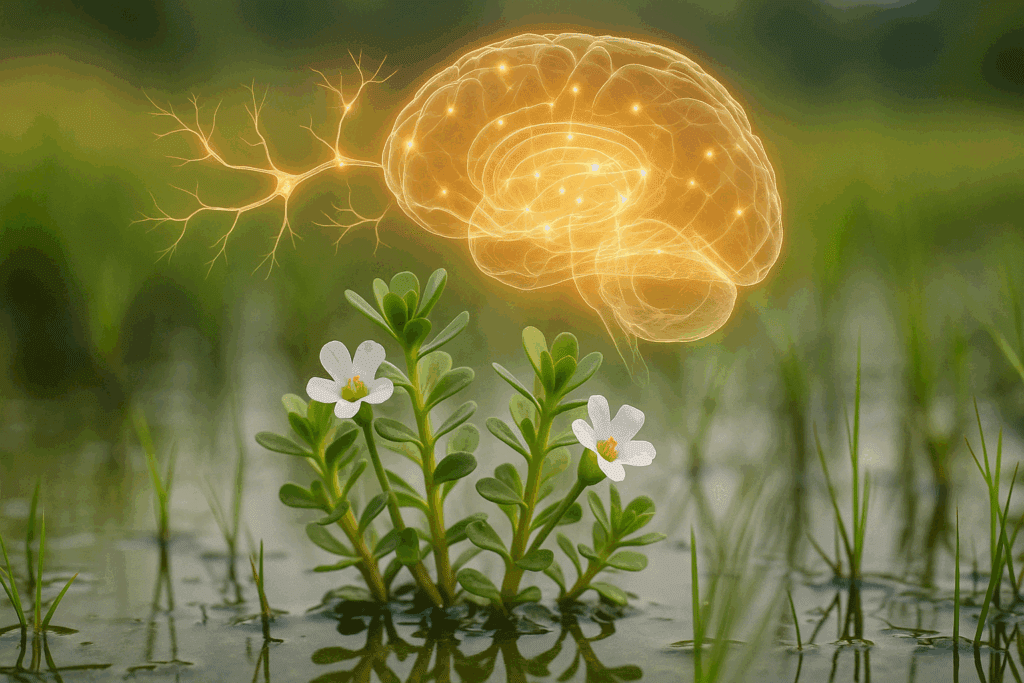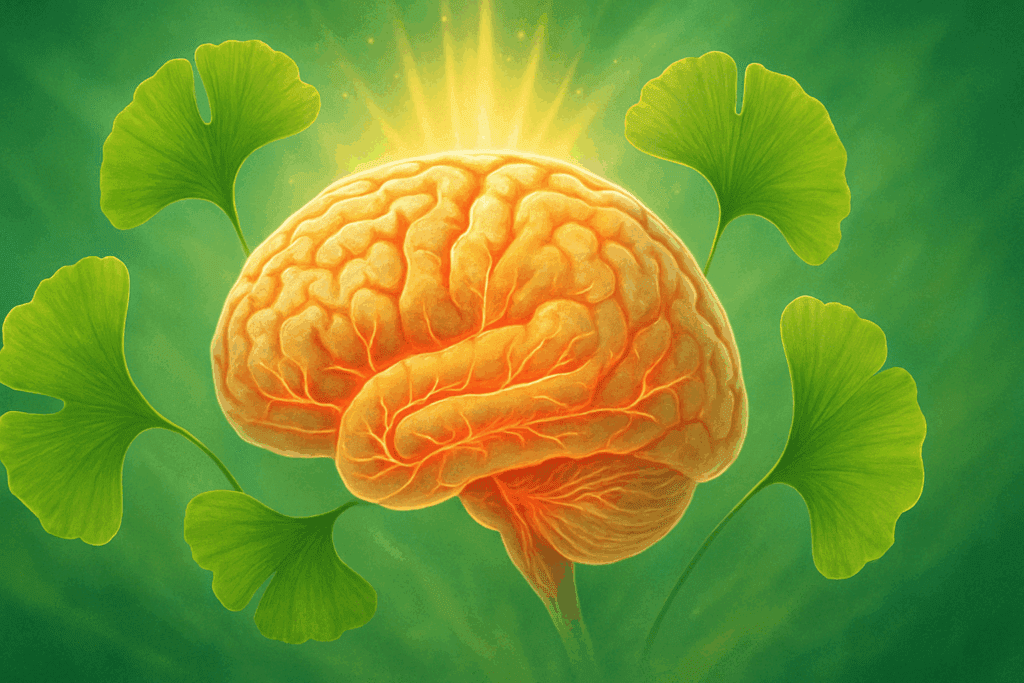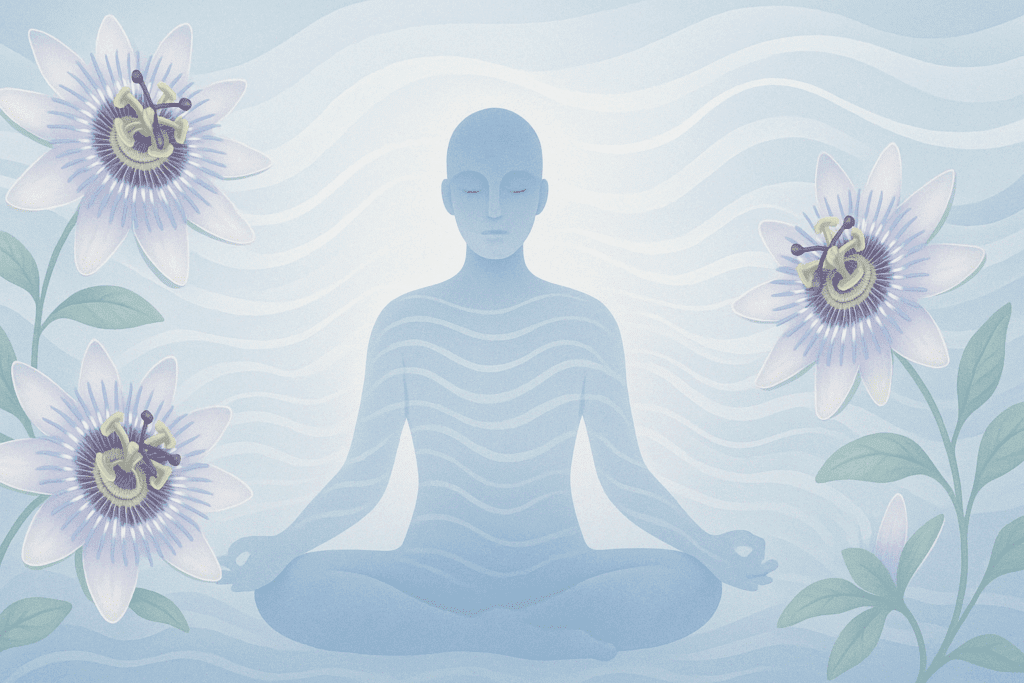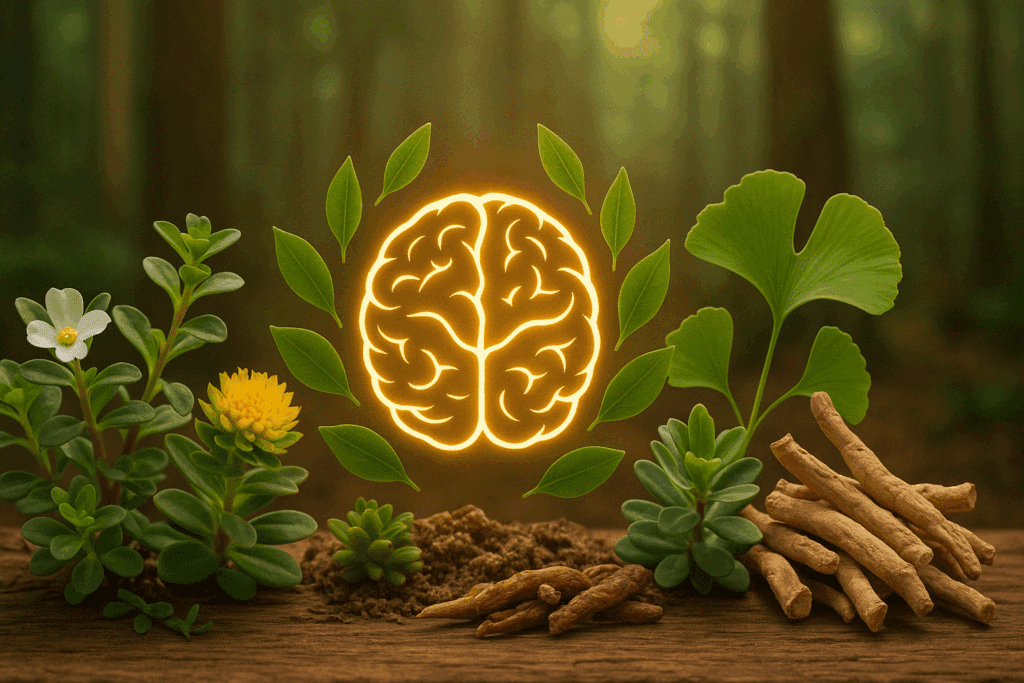Introduction: Exploring Natural Support for Focus and Calm in ADHD
In a world that increasingly demands constant mental agility, emotional regulation, and sustained attention, individuals living with Attention Deficit Hyperactivity Disorder (ADHD) often find themselves at a unique crossroads. Traditional pharmaceutical treatments remain a cornerstone of management strategies; however, a growing number of individuals are exploring natural options that may enhance focus, promote calm, and support overall cognitive health. Herbs have drawn particular interest, offering the potential to address underlying imbalances in a holistic, gentle way. Among this exploration, questions frequently arise: What is the best herb for ADHD? Which natural supplements for anxiety and focus might ease the emotional turbulence often accompanying ADHD? In this article, we will delve deeply into scientifically backed herbal options, examining how they may complement broader strategies for cognitive and emotional well-being.
You may also like: Where to Buy Bacopa Monnieri: How to Find Quality Supplements for Cognitive and Memory Support
Throughout our discussion, we will also explore how vitamins for anxiety, herbal supplements for anxiety, and natural supplements for nervousness intersect with the needs of those managing ADHD. This holistic perspective not only enriches our understanding of plant-based support but empowers readers to make informed, experience-based decisions that align with their wellness goals.
Understanding the Link Between ADHD, Anxiety, and Emotional Regulation
It is essential to recognize that ADHD is rarely a standalone experience. Emotional dysregulation, impulsivity, and anxiety often intertwine with the classic symptoms of inattentiveness and hyperactivity. Recent studies have highlighted that individuals with ADHD are at a significantly higher risk for anxiety disorders compared to the general population. Consequently, natural supplements for anxiety and herbal supplements for anxiety have become a meaningful area of research and interest among healthcare providers and patients alike.
When evaluating the best supplements for stress and anxiety, it is critical to consider how these interventions may also support ADHD symptomatology. Vitamins that help with anxiety, for example, may stabilize mood and bolster neurotransmitter function, providing foundational support for better focus and behavioral control. Moreover, understanding what lowers anxiety naturally can offer valuable insights into lifestyle strategies that complement herbal or vitamin-based supplementation. By addressing anxiety and cognitive disruption simultaneously, individuals may experience a more comprehensive improvement in quality of life.

Criteria for Evaluating the Best Herbs for ADHD
Choosing the best herb for ADHD is not merely a matter of popularity or anecdotal success. It requires a nuanced evaluation grounded in scientific evidence, pharmacological understanding, and clinical experience. The herb must demonstrate the ability to influence neurotransmitter systems involved in attention and mood regulation, such as dopamine, norepinephrine, and serotonin. Furthermore, it must possess a safety profile suitable for long-term use, especially considering that ADHD management is typically a lifelong endeavor.
In addition, the best supplements for depression and anxiety often share commonalities with ADHD interventions. Herbs that modulate stress responses, improve executive functioning, and enhance neuroplasticity are particularly valuable. Practical considerations, such as ease of use, accessibility, and potential interactions with medications, also influence the selection process. By synthesizing these criteria, we can identify herbal candidates that truly embody the potential to support focus, calm, and cognitive health in a meaningful way.
Bacopa Monnieri: Ancient Wisdom Meets Modern Science
Among the pantheon of herbal remedies, Bacopa monnieri stands out as one of the most extensively studied natural options for cognitive enhancement. Rooted in Ayurvedic tradition, Bacopa has been used for centuries to promote intellect, memory, and emotional resilience. Modern research suggests that Bacopa’s active compounds, bacosides, exert neuroprotective effects by enhancing synaptic communication and modulating neurotransmitter levels.
In clinical trials, Bacopa has demonstrated improvements in attention, working memory, and processing speed—functions commonly impaired in ADHD. Furthermore, Bacopa’s adaptogenic properties may help buffer the physiological effects of chronic stress, making it a valuable addition to natural supplements for anxiety. Studies have also noted its mild antidepressant effects, aligning it with the best supplements for depression and anxiety.
When considering what natural supplements help anxiety and cognitive clarity, Bacopa emerges as a top contender. It offers an evidence-based, well-tolerated option that aligns seamlessly with the needs of individuals seeking natural focus support. Practical dosing strategies, potential synergistic effects with other herbs, and individualized titration further enhance its appeal.

Rhodiola Rosea: Adaptogenic Support for Energy and Emotional Balance
Another remarkable herb worthy of discussion is Rhodiola rosea. As an adaptogen, Rhodiola helps the body resist various stressors—an attribute that holds significant implications for managing ADHD-related fatigue, overwhelm, and emotional instability. Rhodiola’s active constituents, such as rosavin and salidroside, have been shown to influence monoamine neurotransmitters, offering potential benefits for focus, mood, and anxiety reduction.
Clinical studies have demonstrated Rhodiola’s ability to enhance cognitive performance under stress, suggesting its relevance among natural supplements for nervousness and over-the-counter stress relief strategies. It is particularly attractive for those wondering what can you take for anxiety over the counter without resorting to sedating substances.
For individuals exploring what vitamins should I take for anxiety, it is valuable to note that combining Rhodiola with key vitamins that help with anxiety, such as B-complex vitamins or magnesium, may create synergistic benefits. Rhodiola represents a compelling option for those seeking to stabilize energy and mood naturally while supporting the cognitive demands of everyday life.
Ginkgo Biloba: Enhancing Circulation and Cognitive Function
Ginkgo biloba, derived from one of the oldest living tree species, has captured the attention of researchers for its potential to enhance cognitive function through improved cerebral blood flow. By promoting oxygen and nutrient delivery to the brain, Ginkgo may ameliorate symptoms of cognitive sluggishness, distractibility, and emotional volatility.
Studies suggest that Ginkgo’s flavonoid glycosides and terpene lactones contribute to its antioxidant, anti-inflammatory, and neurotransmitter-modulating effects. These properties make it a viable consideration among the best supplements for anxiety and natural supplements for anxiety. Moreover, Ginkgo’s gentle mood-lifting effects position it well among supplements for depression and anxiety, offering a non-sedating, energizing alternative.
For individuals seeking to understand what lowers anxiety naturally, Ginkgo presents a fascinating avenue of exploration. By supporting neuronal resilience and vascular health, Ginkgo provides a multidimensional approach to improving focus and emotional stability—key goals for individuals managing ADHD.
Passionflower: Calming the Mind Without Sedation
When considering the best supplements for stress and anxiety, passionflower (Passiflora incarnata) often emerges as a leading candidate. Traditionally used for its calming properties, passionflower appears to exert its anxiolytic effects through modulation of the GABAergic system. Unlike pharmaceutical sedatives, passionflower typically promotes tranquility without impairing cognitive function—a critical distinction for those managing ADHD.
In clinical settings, passionflower has been shown to reduce symptoms of generalized anxiety, insomnia, and nervous tension, making it a strong contender among herbal supplements for anxiety. Its ability to promote relaxation without cognitive dulling is particularly beneficial for individuals who require sustained mental clarity alongside emotional regulation.
When individuals ask, what is the best herb for anxiety or what can I take naturally for anxiety, passionflower is often recommended. Its gentle, non-addictive profile makes it an appealing choice for long-term emotional resilience. Furthermore, passionflower may complement other natural interventions, such as vitamins that help with anxiety or dietary supplements for anxiety, creating a well-rounded support strategy.

L-Theanine: Amino Acid Calm for Sharp Focus
Though not an herb in the traditional sense, L-theanine—an amino acid found predominantly in green tea—deserves honorable mention for its remarkable ability to promote relaxed alertness. L-theanine has been shown to enhance alpha brain wave activity, a state associated with calm focus and creative thinking.
For individuals seeking the best vitamins for stress and anxiety, L-theanine presents a unique natural option that can be used alongside other vitamins for anxiety. Research has demonstrated that L-theanine supplementation can improve attention performance, reduce mind-wandering, and decrease physiological markers of stress without causing sedation. This makes it an ideal companion for ADHD management, where the goal is to enhance mental clarity rather than induce fatigue.
Given its safety profile and synergistic potential, L-theanine is frequently recommended alongside natural supplements for anxiety and what supplements are good for depression. Whether used alone or combined with herbal interventions, L-theanine embodies the principle of enhancing focus and emotional balance through natural means.

Frequently Asked Questions (FAQ) About Herbs, Supplements, and Vitamins for ADHD, Anxiety, and Cognitive Health
What are some emerging natural supplements for anxiety that could also benefit ADHD symptoms?
Beyond the well-known options, emerging research highlights saffron extract and lion’s mane mushroom as promising natural supplements for anxiety and cognitive clarity. Both have shown preliminary benefits in improving emotional resilience and executive function. While saffron modulates neurotransmitters related to mood, lion’s mane appears to stimulate nerve growth factor production, crucial for brain plasticity. Including such newer interventions alongside vitamins for anxiety creates a more comprehensive natural regimen for individuals managing ADHD. When considering the best supplements for anxiety, expanding beyond traditional herbs opens exciting avenues for holistic cognitive support.
Can dietary supplements for anxiety truly help with emotional regulation in adults with ADHD?
Yes, many dietary supplements for anxiety provide biochemical support that is crucial for emotional regulation, particularly in adults with ADHD who often struggle with impulsivity and mood swings. Supplements like magnesium glycinate, omega-3 fatty acids, and L-theanine offer targeted pathways to stabilize neurotransmitter activity and reduce cortisol spikes. Although they are not standalone treatments, these supplements can significantly enhance emotional resilience when combined with therapy or lifestyle changes. As more people seek over-the-counter stress relief, it is important to prioritize evidence-based choices that also offer cognitive benefits. Integrating vitamins that help with anxiety into daily routines may make a noticeable difference in day-to-day emotional balance.
How can someone personalize their search for the best supplements for stress and anxiety?
Personalizing a supplement plan starts with identifying specific symptom patterns rather than relying solely on popular trends. For example, someone experiencing physical restlessness might benefit more from calming herbal supplements for anxiety like passionflower, whereas cognitive overdrive might respond better to L-theanine or adaptogens. Consulting with a healthcare provider to measure nutrient levels can also help uncover deficiencies that vitamins for anxiety could address directly. Moreover, people asking, “what vitamins should I take for anxiety?” often find that a personalized approach combining several strategies, including diet and mindfulness practices, achieves better results. The best vitamins for stress and anxiety ultimately depend on one’s unique physiological and psychological profile.
Are there specific vitamins that help with anxiety during periods of high academic or workplace stress?
During intense cognitive demands, B-complex vitamins, vitamin C, and magnesium are among the most effective vitamins that help with anxiety and mental performance. These nutrients play vital roles in neurotransmitter synthesis, energy metabolism, and stress response regulation. High-pressure environments rapidly deplete these resources, leading to heightened irritability and impaired focus. Incorporating the best vitamins for anxiety into one’s routine can be a proactive way to safeguard mental stamina during stressful periods. Additionally, layering these nutrients with natural supplements for nervousness, such as rhodiola or ashwagandha, can offer dual-action support for both focus and calm.
What natural supplements help anxiety without causing drowsiness or brain fog?
Certain natural supplements for anxiety, such as L-theanine, bacopa monnieri, and rhodiola rosea, provide calming effects without impairing alertness or inducing fatigue. Unlike sedative options, these compounds enhance alpha brain wave activity or adapt to the body’s needs by balancing cortisol and neurotransmitter levels. This makes them ideal for individuals asking, “what can I take naturally for anxiety?” while still needing to remain productive and mentally sharp. When seeking the best supplements for anxiety that support daytime functionality, prioritizing non-sedating options is critical. Combining these with the best vitamins for stress and anxiety can create a synergistic, all-day support system.
Is it true that some people experience major mood improvements by using specific vitamins for anxiety?
Absolutely. Many individuals report life-changing improvements when correcting underlying deficiencies through targeted vitamins for anxiety, a phenomenon sometimes discussed in stories about how I cured my anxiety with a vitamin. In particular, deficiencies in vitamin D, magnesium, and B6 are strongly correlated with higher rates of anxiety and mood instability. By restoring these nutrients, people often find their resilience against everyday stressors dramatically improves without needing stronger interventions. This real-world evidence highlights why understanding what vitamin helps anxiety and stress is essential when crafting a personalized wellness strategy. Supplements for depression and anxiety can, in such cases, complement psychotherapy and lifestyle interventions very effectively.
Can multivitamins really make a difference for those struggling with chronic anxiety?
While multivitamins are not a cure-all, they can certainly serve as a foundational layer of support, particularly when carefully chosen for quality and spectrum. For individuals with inconsistent diets or high stress levels, multivitamins can ensure a baseline intake of vitamins that help with anxiety and nervous system function. Notably, options specifically formulated as the best vitamins for stress and anxiety often contain higher levels of B vitamins, magnesium, and adaptogens. If you’re wondering, “can multivitamins help anxiety?” the answer is yes\u2014but it is most effective when combined with mindful eating, exercise, and cognitive-behavioral practices. Strategic supplementation should aim to fill gaps rather than act as a standalone solution.
What are the signs that someone might benefit from herbal supplements for anxiety instead of pharmaceutical options?
Individuals who experience mild to moderate symptoms, prefer natural interventions, or have adverse reactions to pharmaceuticals often find herbal supplements for anxiety to be a viable alternative. Warning signs that herbal support might be beneficial include chronic tension, sleep disturbances, irritability, and racing thoughts\u2014especially if they disrupt daily functioning but not to a severely debilitating extent. Those exploring what to take for anxiety natural often prioritize gentler interventions with a lower risk profile. Herbal strategies, paired with best supplements for depression and anxiety when needed, can help create a gradual, sustainable path to emotional resilience. However, professional evaluation is critical to rule out conditions that may require more intensive treatment.
Which natural or over-the-counter options are safest for long-term use for anxiety management?
When considering what natural supplements help anxiety for the long haul, herbs like ashwagandha, passionflower, and magnesium-based vitamins stand out for their safety profiles. Unlike some pharmaceutical treatments, these supplements for anxiety typically do not lead to dependency or significant cognitive impairment over time. Many individuals seeking over-the-counter stress relief find that low-risk options enable consistent, sustainable management of anxiety symptoms. Furthermore, blending these with natural supplements for nervousness allows for adaptability as life circumstances change. When assessing what can you take for anxiety over the counter, prioritizing safety, tolerability, and evidence-backed effectiveness is crucial for long-term success.
What future innovations are emerging in the field of natural anxiety and cognitive health support?
The future of natural anxiety and cognitive support looks increasingly personalized and scientifically validated. Innovations include precision formulations that combine the best herbal supplements for anxiety with targeted nootropics designed for specific neurotransmitter systems. Advances in genetic testing also promise to help identify which supplements for depression and anxiety are most likely to benefit an individual based on their DNA profile. Exciting new areas of exploration include adaptogenic mushroom extracts, neurotrophic peptides, and custom blends of what vitamins are good for nervousness tailored to stress sensitivity markers. As the landscape evolves, answering questions like “what is the best natural medicine for anxiety?” will become a highly individualized process guided by both science and personal experience.

Ashwagandha: Rebalancing the Stress Response System
Ashwagandha (Withania somnifera) has earned acclaim as one of the most potent adaptogenic herbs for stress modulation. Rooted in Ayurvedic tradition, Ashwagandha has been extensively studied for its ability to lower cortisol levels, enhance resilience to stress, and support emotional well-being.
For individuals seeking what to take for anxiety natural or the best supplements for depression and anxiety, Ashwagandha offers compelling advantages. By rebalancing the hypothalamic-pituitary-adrenal (HPA) axis, Ashwagandha may reduce symptoms of nervousness, anxiety, and cognitive fatigue—all of which can exacerbate ADHD symptoms.
Moreover, Ashwagandha’s neuroprotective and neuroplasticity-enhancing properties contribute to its standing among natural supplements for anxiety and dietary supplements for anxiety. When combined with vitamins that help with anxiety, such as vitamin D or magnesium, Ashwagandha may amplify the overall resilience-building effects. Its holistic impact on mental and emotional well-being makes it a cornerstone of natural strategies for ADHD support.
Was this article helpful? Don’t let it stop with you. Share it right now with someone who needs to see it—whether it’s a friend, a colleague, or your whole network. And if staying ahead on this topic matters to you, subscribe to this publication for the most up-to-date information. You’ll get the latest insights delivered straight to you—no searching, no missing out.
Further Reading:
7 Best Herbs for Memory and Brain Health
7 Best Cognitive Enhancers For ADHD
The Top 5 Natural Remedies for ADHD
Important Note: The information contained in this article is for general informational purposes only, and should not be construed as health or medical advice, nor is it intended to diagnose, prevent, treat, or cure any disease or health condition. Before embarking on any diet, fitness regimen, or program of nutritional supplementation, it is advisable to consult your healthcare professional in order to determine its safety and probable efficacy in terms of your individual state of health.
Regarding Nutritional Supplements Or Other Non-Prescription Health Products: If any nutritional supplements or other non-prescription health products are mentioned in the foregoing article, any claims or statements made about them have not been evaluated by the U.S. Food and Drug Administration, and such nutritional supplements or other health products are not intended to diagnose, treat, cure, or prevent any disease.


